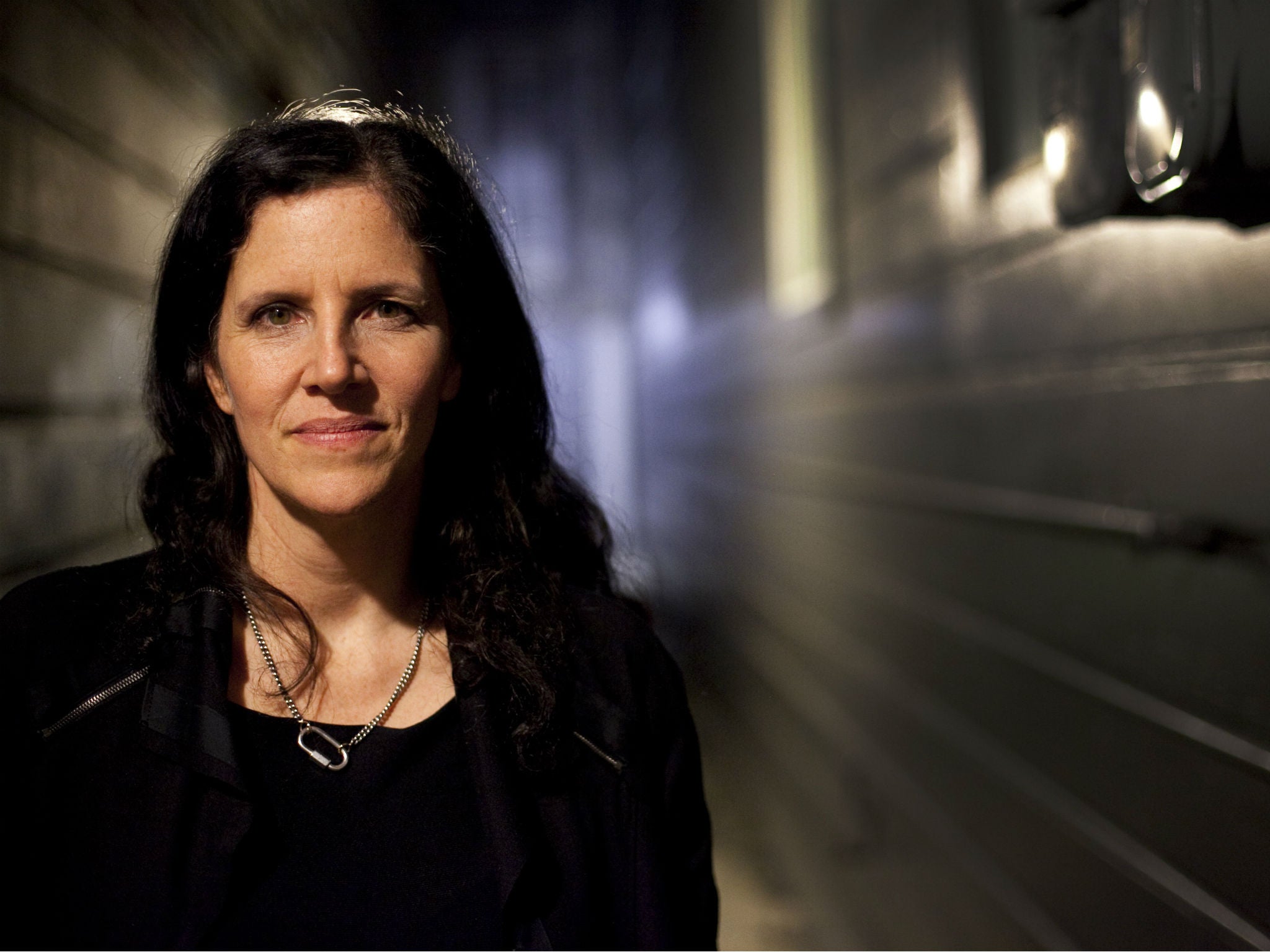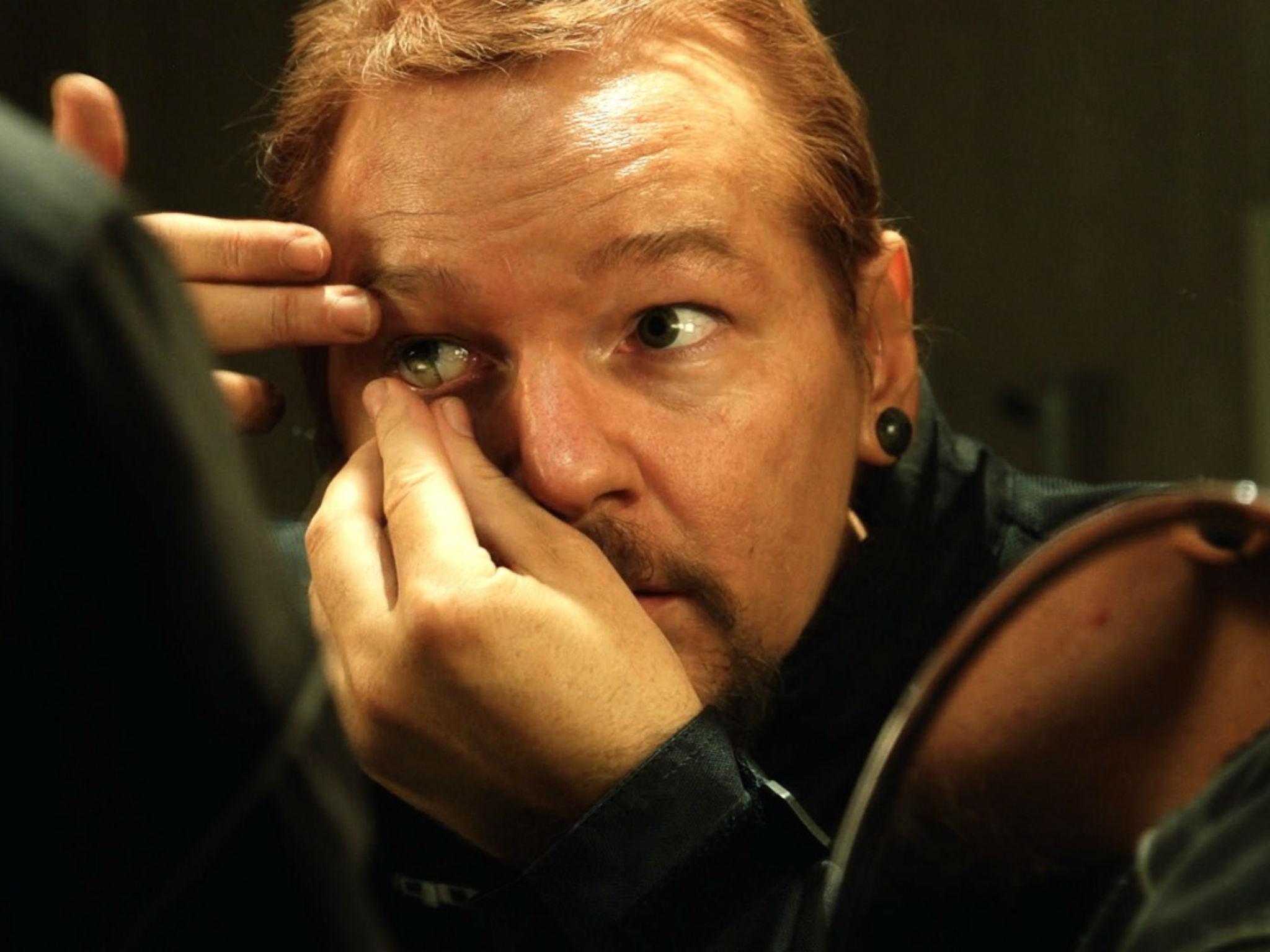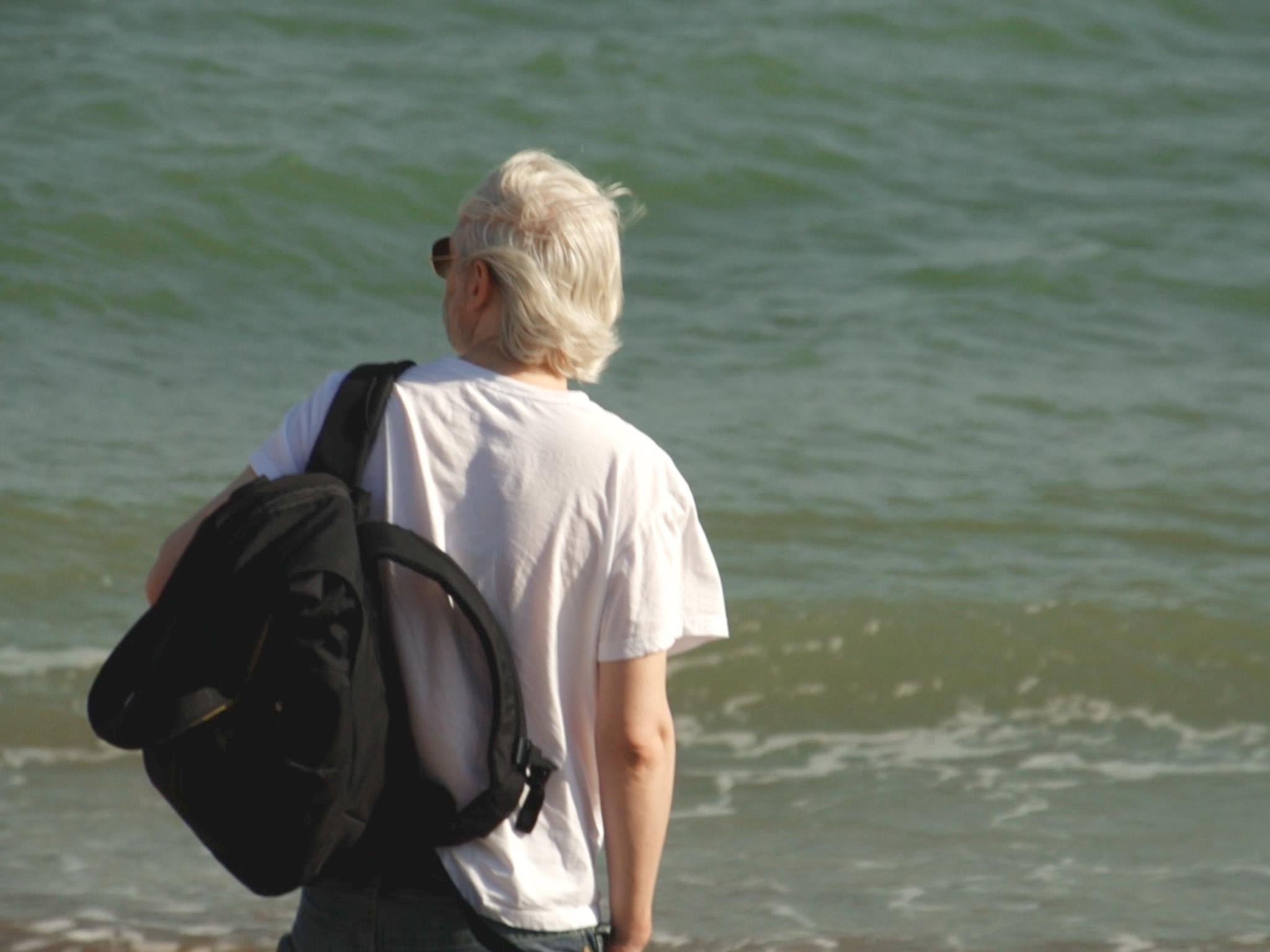Risk's Laura Poitras on her new Julian Assange documentary, Chelsea Manning and being under surveillance
The Oscar-winning director of ‘CitizenFour’ about Edward Snowden, finds plenty of flaws in her character study of WikiLeaks' Assange, which was filmed over six years

Your support helps us to tell the story
From reproductive rights to climate change to Big Tech, The Independent is on the ground when the story is developing. Whether it's investigating the financials of Elon Musk's pro-Trump PAC or producing our latest documentary, 'The A Word', which shines a light on the American women fighting for reproductive rights, we know how important it is to parse out the facts from the messaging.
At such a critical moment in US history, we need reporters on the ground. Your donation allows us to keep sending journalists to speak to both sides of the story.
The Independent is trusted by Americans across the entire political spectrum. And unlike many other quality news outlets, we choose not to lock Americans out of our reporting and analysis with paywalls. We believe quality journalism should be available to everyone, paid for by those who can afford it.
Your support makes all the difference.“I think he’s brilliant, I think you can say he’s a visionary in terms of understanding the internet, journalism and mass surveillance,” Oscar-winning director Laura Poitras says of WikiLeaks founder Julian Assange, the subject of her new film Risk. It seems an enthusiastic enough endorsement but anyone expecting a hagiography of Assange will be surprised. As Poitras quickly adds: “I think he is a very flawed person in other ways.”
At times, the documentary is extremely jarring. You think you’re watching a film about whistleblowers, freedom of speech and hacking. Then, in footage of a meeting between Assange and lawyer Helena Kennedy, Assange uses casually sexist language. We see him having his hair cut, looking almost as if he is the Sun King in the Court of Versailles as followers and journalists scurry around him. His egotism becomes increasingly evident.
As Poitras points out, it is not only his attitudes toward women and gender that rankle. “I think he can hold views that are incredibly philosophical and complex and then others that are very reductive.” Assange is manipulative and (as he puts it himself) “ruthlessly pragmatic”. He’s a “strategist” whose “alliances will shift” depending on who can best help him achieve his long term goals. “Personally, I think it’s public that I have fallen out with him. I mean, we have it in the film where he says the film is a threat to his freedom and he is forced to treat it accordingly.”
Assange asked Poitras to take out the scene in which he talks disparagingly about the Swedish women who made allegations of sexual assault against him. She refused. As she argues, she is only using “his own words”. There is the obvious irony in the fact that Assange’s fame and notoriety rest on his willingness to disclose information others would rather see suppressed – and yet he wants his own secrets to be protected.

Risk is in no way a hatchet job. Its portrayal of Assange is nuanced and complex. On camera, he is philosophical, articulate and charismatic. He is vain too but he is generally very measured. Just occasionally, we see glimpses of his volatility. “There were a couple of times when he lost his temper and started yelling at me,” Poitras remembers the moments her subject flew “off the handle”.
Poitras started filming Assange and WikiLeaks in 2011, two years before she was contacted anonymously by Edward Snowden, who leaked her thousands of National Security Agency documents.
At first, Poitras thought that Snowden and Assange might have fitted into the same documentary. Then, she realised there was “no way” they’d work together – they were two separate stories. She set aside the Assange and WikiLeaks material and concentrated on the Snowden project, CitizenFour (2014) which won her an Oscar.
That left her with the problem of what to do with the earlier footage. By then, Assange, who had been frustrated that she hadn’t entrusted him with the Snowden material, had already been living for several years inside the Ecuadorian embassy in Knightsbridge. (He took refuge there in the summer of 2012 after he was threatened with deportation to Sweden to answer the allegations of sexual assault.)
An early version of Risk (one broadly sympathetic to Assange) was screened in Cannes in 2016 but the story was continuing to grow. Last year, WikiLeaks published emails from the Democratic National Committee and from former White House Chief of Staff John Podesta.

Watch Apple TV+ free for 7 days
New subscribers only. £8.99/mo. after free trial. Plan auto-renews until cancelled

Watch Apple TV+ free for 7 days
New subscribers only. £8.99/mo. after free trial. Plan auto-renews until cancelled

“Of course, I knew I had to keep filming,” the director says of how Risk has kept on growing.
Poitras had long since lost her status as simply an observer, making fly on the wall documentaries. “In the last two films, I have become more of a participant, a protagonist, because of the reporting I have done,” she says of CitizenFour and Risk. “It is very uncomfortable.”
Thanks to her reporting on NSA mass surveillance and her famous, clandestine meeting with Snowden in Hong Kong in 2013, she is now a celebrity of sorts herself. She has also been targeted by the US authorities for well over a decade. in 2006, she was placed on a secret watch list by the US government. Underlining her new found fame, she was played on screen by Melissa Leo in Oliver Stone’s film Snowden (2016). No, she hasn’t seen the movie and certainly doesn’t sound too enthused by it.
“Oliver Stone approached me when he was developing the project and I was still editing CitzienFour. He was trying to urge me to delay the release of my film because he was making a ‘real movie’,” she says. “He had been drinking. It wasn’t a nice encounter…and then they didn’t invite me to any of the screenings - and I wasn’t going to pay to see it.”
The director insists that her films are always looking at the human factor as well as at the political dimension. CitizenFour may have caused a huge media furore but on one level it was a story about why “a young person would risk his freedom to reveal information about mass surveillance.” Risk is a character study as much as it is a political treatise. It can also be read as a film about everyday sexism. Assange isn’t the only one whose behaviour toward women is called into question. It emerges that another charismatic figure in the story, journalist and hacker Jacob Appelbaum, has been accused of bullying and sexual harassment.
“That’s one of the things I hope the film raises, what happens within organisations or movements or work environments when certain types of behaviour is tolerated over long periods of time,” Poitras says. “I think it’s something we see a lot of, right, baseline sexism I would call it and that I wanted to draw attention to. We’ve heard stories about social movements in the past where we have contradictions between the larger philosophical and ideological goals and the internal politics, dynamics and power structures.”
Poitras is currently executive-producing a new film about Chelsea Manning, the transgender US soldier formerly known as Bradley Manning who leaked documents to WikiLeaks. “Chelsea is a hero and she risked her freedom to inform the public very much in the way that Edward Snowden did,” Poitras suggests. “The film will allow her for the first time to speak in her own voice."
She is also executive-producing a film about Peter Thiel, the billionaire who brought down celebrity blog Gawker in a case that many saw as an attack on the free press.
These days, Poitras is back in the US and based in New York, having lived for over two years in Berlin. She doesn’t know how long she will be able to stay, though.
“I know I am on a watchlist. With the Snowden material, I don’t think they are ever going to stop paying attention. It’s something you learn to live with,” she says of the surveillance she is still subject to. “I came back [to the US] largely because of the work that I do. As a documentary filmmaker, I’ve been focusing on what the US is doing politically and globally. I think it is something important as a US citizen to document what my own country is engaged in. For now, it is OK for me to be here but the situation could change. The Trump Administration is no friend of the press and I might feel it is necessary to leave again.”
On this slightly chilling note, with the thought that she may be forced to quit her homeland, the interview is brought to an end.
'Risk' is out now
Join our commenting forum
Join thought-provoking conversations, follow other Independent readers and see their replies
Comments